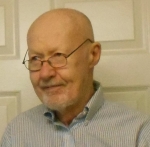Brain physiology
Brain physiology
I have certainly read a great deal about the effects on the brain of oxygen deprivation. I would, however, have surmised that after a night of apnea caused deprivation the brain would gradually recover once you were awake and breathing normally. This however doesn't seem to be the case, you wake unrefreshed and continue through the day feeling drowsy and deprived of energy. I'm sure there is some subtle physiological explanation for why the brain takes so long to recover.
Any words of insight will be appreciated.
Any words of insight will be appreciated.
_________________
| Machine: ResMed AirSense™ 10 AutoSet™ CPAP Machine with HumidAir™ Heated Humidifier |
| Mask: ResMed AirFit™ F20 Full Face CPAP Mask with Headgear |
| Additional Comments: CMS50F recording oximeter |
Josiah
Re: Brain physiology
Is it the sleep deprivation that is required to feel refreshed?
(Edit: Julie is correct. I meant to say that you need to get rid of the sleep deprivation before you can feel refreshed.)
(Edit: Julie is correct. I meant to say that you need to get rid of the sleep deprivation before you can feel refreshed.)
_________________
| Machine: ResMed AirSense™ 10 AutoSet™ CPAP Machine with HumidAir™ Heated Humidifier |
| Mask: DreamWear Nasal CPAP Mask with Headgear |
Last edited by Mogy on Thu Dec 07, 2017 8:45 pm, edited 1 time in total.
Using weight loss, general exercise, and tongue/throat exercises I managed to get my AHI down to approx 5.
Not using a machine currently.
Not using a machine currently.
Re: Brain physiology
Just the opposte - how would sleep deprivation help you to feel refreshed?
You don't feel better in the daytime, even with more oxygen, because you've lost hours of what should be refreshing sleep by apnea arousals, even if you're not conscious of them when they occur. It's as if you've only slept a couple of hrs rather than e.g. 7.
You don't feel better in the daytime, even with more oxygen, because you've lost hours of what should be refreshing sleep by apnea arousals, even if you're not conscious of them when they occur. It's as if you've only slept a couple of hrs rather than e.g. 7.
_________________
| Mask: Ultra Mirage™ Full Face CPAP Mask with Headgear |
| Humidifier: IntelliPAP Integrated Heated Humidifier |
Re: Brain physiology
Also the rem sleep lost. The brain runs its "defrag routines" during rem sleep. A year or two or ten without defraging your computer ...... oopps your brain ...... and your brain is probably working triple time for the simplest routines. Sleep apnea is not just about oxygen deprivation, although that in itself is enough.
_________________
| Mask: AirFit™ P30i Nasal Pillow CPAP Mask with Headgear Starter Pack |
| Additional Comments: SleepyHead , P10 and Dreamwear FFM, Airfit N20 |
Re: Brain physiology
The other posters are correct - you will be sleep deprived all day - you need a good night (or more) of sleep to overcome this.
However,
You might feel a little better after these things are cleared.
However,
... there is a small kernel of truth to this. After awakening and beginning to breathe normally, your body will gradually clear out all those nasty hormones and other substances it spilled into all your cells while it was in apneic stress. These are things like C-reactive protein, fight-or-flight hormones and other substances that I am not educated on enough to name specifically.Josiah wrote: I would, however, have surmised that after a night of apnea caused deprivation the brain would gradually recover once you were awake and breathing normally.
You might feel a little better after these things are cleared.
Re: Brain physiology
Wow. This is certainly more complex than I thought, so thanks for posting.
_________________
| Machine: DreamStation BiPAP® Auto Machine |
| Mask: ResMed AirFit™ F20 Full Face CPAP Mask with Headgear |
| Humidifier: DreamStation Heated Humidifier |
| Additional Comments: Pressures: IPAP 18/ EPAP 14; Secondary mask - Nuance Pro Nasal Pillow |
Re: Brain physiology
It's not just about temporary drops in O2 and those brain effects. It's about years of sustained low O2 during sleep and the buildup of poisons, including CO2, in the blood and organs overnight, for hours at a time, night after night, year after year.
And that's only the breathing part of the problem. The sleep part of the problem is way more life-threatening and insidious, long-term and short-term, since it does damage on top of damage on top of damage over the years too. Sleepy people are more likely to die of just about anything a person can die from and to get sick from just about anything a person gets sick from.
And those breathing and sleeping aspects together form only one small dimension of the overall sleep-breathing problem for the moderate-to-severe OSA sufferer. That is because as OSA progresses, the body needs to manufacture loads of hormones to use later to jar you awake at night, and those repeated surges can even stop a weakened heart, not to mention how it drenches your body's organs repeatedly with panic-juice [to use a not-so-technical term for it] in a way that can fry sensitive parts of your innards with enough damage that it could take a long time to repair, if it gets repaired at all--all the while wearing out the hormone factories chugging along to keep up with demand.
Your brain is only one organ of many in your body seriously affected by the damage of untreated OSA. Not just low O2. High CO2. Changes to hormones. Destruction of the myriad benefits from good sleep, which is something you need all night every night to be truly healthy.
So don't focus on one small aspect of the overall problem and pretend it is the whole or even the major part of the overall. Not that that is what anyone here is doing. But it is important not to do it because people often get the wrong idea that if they can just keep O2 high enough during sleep they are solving the largest part of the problem. They aren't. They aren't even close.
An oldie but a goodie: https://www.youtube.com/watch?v=-gie2dhqP2c
And that's only the breathing part of the problem. The sleep part of the problem is way more life-threatening and insidious, long-term and short-term, since it does damage on top of damage on top of damage over the years too. Sleepy people are more likely to die of just about anything a person can die from and to get sick from just about anything a person gets sick from.
And those breathing and sleeping aspects together form only one small dimension of the overall sleep-breathing problem for the moderate-to-severe OSA sufferer. That is because as OSA progresses, the body needs to manufacture loads of hormones to use later to jar you awake at night, and those repeated surges can even stop a weakened heart, not to mention how it drenches your body's organs repeatedly with panic-juice [to use a not-so-technical term for it] in a way that can fry sensitive parts of your innards with enough damage that it could take a long time to repair, if it gets repaired at all--all the while wearing out the hormone factories chugging along to keep up with demand.
Your brain is only one organ of many in your body seriously affected by the damage of untreated OSA. Not just low O2. High CO2. Changes to hormones. Destruction of the myriad benefits from good sleep, which is something you need all night every night to be truly healthy.
So don't focus on one small aspect of the overall problem and pretend it is the whole or even the major part of the overall. Not that that is what anyone here is doing. But it is important not to do it because people often get the wrong idea that if they can just keep O2 high enough during sleep they are solving the largest part of the problem. They aren't. They aren't even close.
An oldie but a goodie: https://www.youtube.com/watch?v=-gie2dhqP2c
-Jeff (AS10/P30i)
Accounts to put on the foe list: Me. I often post misleading, timewasting stuff.
Accounts to put on the foe list: Me. I often post misleading, timewasting stuff.
Re: Brain physiology
Read an article in NIH re men with severe untreated sleep apnea. They had multiple brain lesions. 12 months of pap therapy, all but a few showed complete remission of the brain lesions.
I have severe sleep apnea, am female, guessing 9 years undiagnosed sleep apnea. Mild improvements within the first few weeks, mostly notably sleeping 9-10 hrs/night, vastly improved mood, sense of humor coming back, started smiling again, starting to enjoy bird calls, enjoyed sunshine, more optimistic. After 18 months of pap therapy: cognition & attention/focus much improved (could read and comprehend Scientific American articles again-hooray!), short-term memory problems 80% gone, BP back to baseline normal (doc dropped Cozaar, just taking diuretic), verbal fluency restored 95% (surprising only verbal, written not a problem), able to exercise again >5 mins, sleeping 8 hrs/night, started losing weight, and other happy results. Now, 10+ years since staring pap therapy, continued improvements including no more diuretic; however, some long-term memories have never been restored *sigh*, so I assume they resided in brain cells that were damaged while I was undiagnosed.
I have severe sleep apnea, am female, guessing 9 years undiagnosed sleep apnea. Mild improvements within the first few weeks, mostly notably sleeping 9-10 hrs/night, vastly improved mood, sense of humor coming back, started smiling again, starting to enjoy bird calls, enjoyed sunshine, more optimistic. After 18 months of pap therapy: cognition & attention/focus much improved (could read and comprehend Scientific American articles again-hooray!), short-term memory problems 80% gone, BP back to baseline normal (doc dropped Cozaar, just taking diuretic), verbal fluency restored 95% (surprising only verbal, written not a problem), able to exercise again >5 mins, sleeping 8 hrs/night, started losing weight, and other happy results. Now, 10+ years since staring pap therapy, continued improvements including no more diuretic; however, some long-term memories have never been restored *sigh*, so I assume they resided in brain cells that were damaged while I was undiagnosed.
_________________
| Mask: Hybrid Full Face CPAP Mask with Nasal Pillows and Headgear |
| Humidifier: HumidAire H4i™ Heated Humidifier |
| Additional Comments: Started Aug '07 CPAP Escape at 11 then 9, S9 APAP range 9.8-16, now 10-17 |
ResMed S9 range 9.8-17, RespCare Hybrid FFM
Never, never, never, never say never.
Never, never, never, never say never.
Re: Brain physiology
Interesting. During the years before my sleep apnea was diagnosed, scans done over a few years showed increasing areas of "microvascular ischemic lesions". Can't help but wonder if their progression slowed, stopped, or maybe even resolved. However, I'm not hoping for a medical reason to do another scan.Muse-Inc wrote:Read an article in NIH re men with severe untreated sleep apnea. They had multiple brain lesions. 12 months of pap therapy, all but a few showed complete remission of the brain lesions.
_________________
| Mask: TAP PAP Nasal Pillow CPAP Mask with Improved Stability Mouthpiece |
| Humidifier: S9™ Series H5i™ Heated Humidifier with Climate Control |
| Additional Comments: Bleep/DreamPort for full nights, Tap Pap for shorter sessions |
My SleepDancing Video link https://www.youtube.com/watch?v=jE7WA_5c73c
Re: Brain physiology
I would like to thank all those who contributed to this thread. I now have a better understanding and appreciation for the damage that untreated OSA can inflict on more than just your brain. Particular thanks to Jnk and Muse-Inc for her uplifting success story.
_________________
| Machine: ResMed AirSense™ 10 AutoSet™ CPAP Machine with HumidAir™ Heated Humidifier |
| Mask: ResMed AirFit™ F20 Full Face CPAP Mask with Headgear |
| Additional Comments: CMS50F recording oximeter |
Josiah
- chunkyfrog
- Posts: 34397
- Joined: Mon Jul 12, 2010 5:10 pm
- Location: Nebraska--I am sworn to keep the secret of this paradise.
Re: Brain physiology
Jumping in maybe a wee bit late, but feelings can be misleading.
Sometimes the stress hormones from apnea can make us feel energized.
Once these stress hormones have tapered off,
we can feel LESS frisky after the first few days of cpap use.
At least, that did happen to me.
We need to give ourselves time to stabilize after starting cpap.
Sometimes the stress hormones from apnea can make us feel energized.
Once these stress hormones have tapered off,
we can feel LESS frisky after the first few days of cpap use.
At least, that did happen to me.
We need to give ourselves time to stabilize after starting cpap.
_________________
| Mask: AirFit™ P10 For Her Nasal Pillow CPAP Mask with Headgear |
| Additional Comments: Airsense 10 Autoset for Her |
Re: Brain physiology
I've been on XPAP successfully for 12 Years, Frisky has never come to visit here. Jimchunkyfrog wrote:Jumping in maybe a wee bit late, but feelings can be misleading.
Sometimes the stress hormones from apnea can make us feel energized.
Once these stress hormones have tapered off,
we can feel LESS frisky after the first few days of cpap use.
At least, that did happen to me.
We need to give ourselves time to stabilize after starting cpap.
Maybe I'm using the wrong Bait!
Use data to optimize your xPAP treatment!
"The art of medicine consists in amusing the patient while nature cures the disease." Voltaire
"The art of medicine consists in amusing the patient while nature cures the disease." Voltaire















